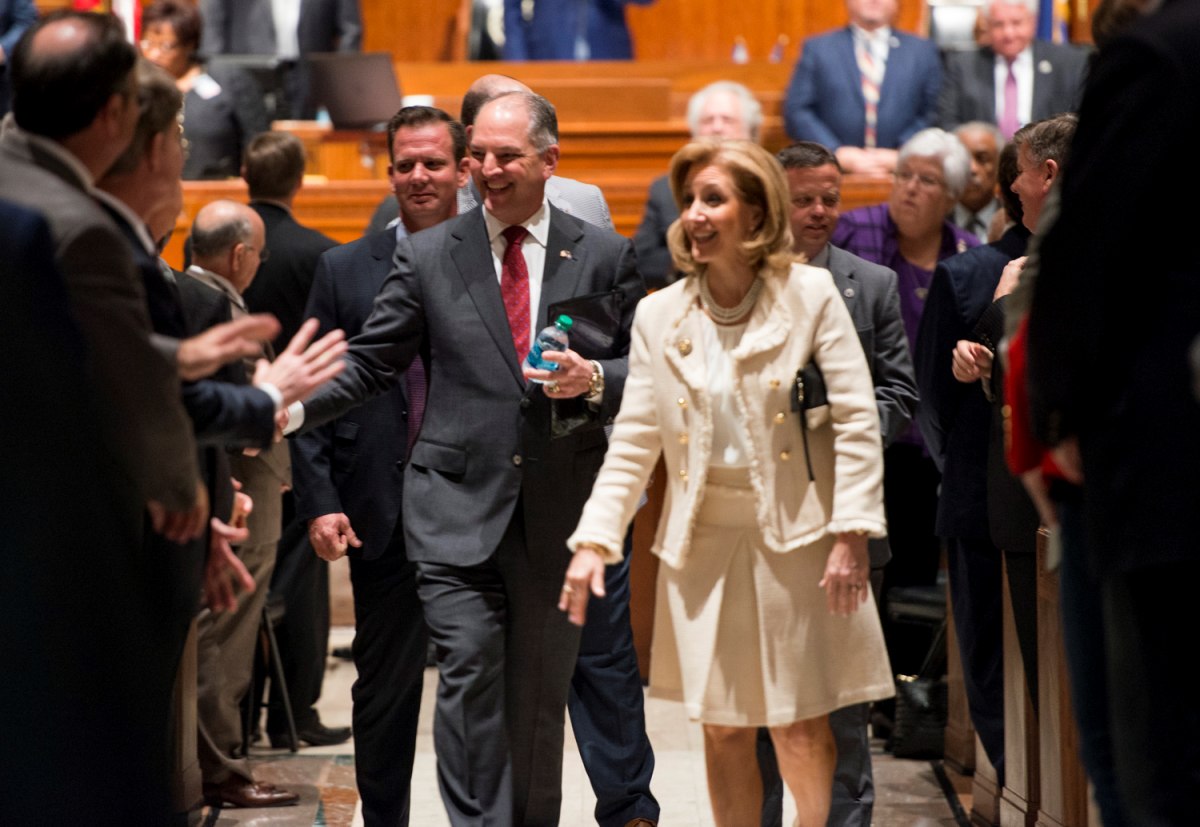Louisiana lawmakers Monday night officially launched a special session dedicated to closing a $304 million mid-year budget shortfall with Gov. John Bel Edwards pitching his plan and challenging Republicans who oppose it to come up with a better one.
The Democratic governor proposes using $119 million of the state’s savings, nicknamed the Rainy Day Fund, cutting $60 million from the state budget and using “budget adjustments” to close the remainder of the gap. Some in the Republican-dominated Legislature oppose using the savings fund.
An economy that shed jobs over the past year largely drove tax revenue down, causing the budget shortfall.
“I am aware of the criticisms of using this approach. However, we should be mindful that that the (Rainy Day Fund) was created for this very purpose,” Edwards said before a joint session of the Legislature. “If, collectively, you prefer more mid-year cuts than I have proposed, then propose those specific cuts and vote for them.”
House Appropriations Chairman Rep. Cameron Henry, a Republican from Metairie, plans to do just that. He filed a bill that mirrors Edwards’ budget plan, which is being carried by Rep. Walt Leger, D-New Orleans. But Henry will amend his bill, perhaps as early as today, to counter Edwards’ blueprint. He plans to use just $15 million from the Rainy Day Fund and further cut a broad array of state agencies.
Every state agency should be prepared to lose 5 percent of its funding, Henry said.
“(Edwards’ plan) is Jindal economics,” Henry charged, referring to the unpopular former governor’s use of budget maneuvering to keep from cutting spending. “The same things he criticized are what he wants to use again.”
In meetings with his colleagues Monday, House GOP chairman Lance Harris of Alexandria said he heard a number of alternatives to using $119 million from the Rainy Day Fund, officially called the Budget Stabilization Fund.
“There’s some very good ideas out there percolating. It possibly could end up somewhere in the middle…We’re hopefully going to be able to have some compromise.”
But if Republicans want to use less money from the state’s savings account, they will need to find other areas of the budget to make that money up in spending cuts. Edwards noted things like higher education, K-12 education and health care are protected in his budget plan because of the Rainy Day Fund.
“That’s not fear mongering, a scare tactic, or an exaggeration,” Edwards said. “It is a reality.”
It is unclear how much support Henry’s plan will get in the more conservative House versus the Senate. The governor’s press secretary, Richard Carbo, said on Twitter several Senate Republicans, including Senate President John Alario, support Edwards’ plan to use the Rainy Day Fund.
Rep. Julie Stokes, a Kenner Republican, said she wants to find places to reduce spending, but ultimately the Legislature will have to tap into savings to prevent drastic cuts. The plan is a holdover until April’s regular session of the Legislature when lawmakers are expected to tackle more fundamental problems with the state’s finances, she added.
“I don’t know that there are any complete programs that we’d want to get rid of,” said Stokes, who is running for state treasurer. “You do what you have to do to make this work until we can get into a regular session.”








